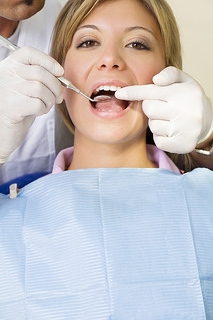Top Reasons People Choose Veneers
August 19th, 2020

Dental veneers are a way to correct and transform your smile by using “contact lens”-thin shells of porcelain or ceramic material and bonding them to the front of your teeth. They are strong and durable, look and feel like natural teeth, and improve your smile immediately. Here are some of the top reasons to consider getting dental veneers.
They Correct Multiple Cosmetic Issues
Dental veneers can help with cosmetic and dental health issues, and treat multiple problems at once. Some common reasons that individuals choose veneers is to close gaps and spaces between the teeth, fix alignment issues, change the overall shape and appearance of a tooth, whiten a smile by covering stained or discolored teeth, and cover chipped or cracked teeth.
If you have teeth that are already worn down and weakened, veneers help prevent further damage by covering them with a thin, tooth-colored shell.
Durability
Dental veneers are also extremely durable. They last several years longer than traditional composite fillings. You’ll have peace of mind when you choose veneers, knowing that you’ll have your new smile for many years. On average, dental veneers last about ten to 15 years. Just like your natural teeth, when you take good care of your veneers, they last longer.
Easy to Clean and Maintain
Keeping your veneers healthy and white is easy: You simply brush and floss them the way you do all of your teeth. Shortly after having your veneers installed, you’ll begin to think of them as your natural teeth because the thin shells lie right on top of your existing teeth. This makes it easy to floss and brush the way you normally would and keep them as clean as possible.
The Process is Simple
Getting dental veneers is a quick and easy process. You have a few short visits at Milford Dental Clinic and see results. On average, it only takes about four weeks from your first appointment to your last to complete the veneer process.
If you are considering getting dental veneers, schedule a consultation appointment with Dr. Janna Spahr and Dr. Jeff Spahr to find out exactly how they can benefit you.




 Website Powered by Sesame 24-7™
Website Powered by Sesame 24-7™